PHOTO: John Parra / Contributor
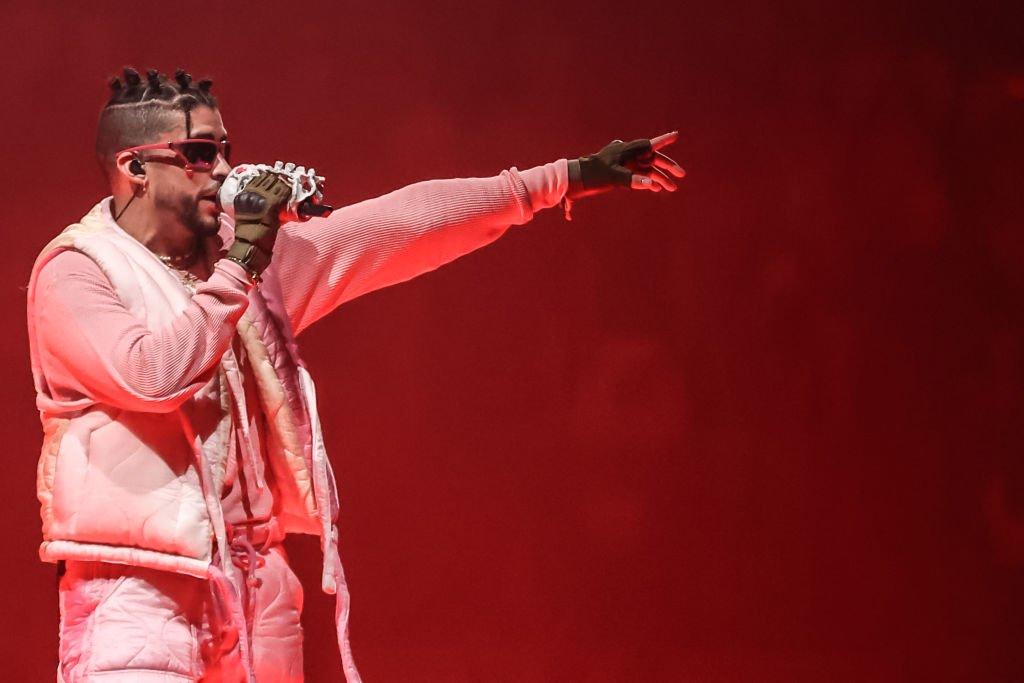
news
Bad Bunny's 'El Último Tour Del Mundo' Wins Best Música Urbana Album | 2022 GRAMMYs
Bad Bunny's 'El Último Tour Del Mundo' Wins Best Música Urbana Album at the 2022 GRAMMYs
Bad Bunny won the GRAMMY for Best Música Urbana Album for El Último Tour Del Mundo at the 2022 GRAMMYs. This is Bad Bunny’s second GRAMMY win — the Puerto Rican artist won the GRAMMY for Best Latin Pop or Urban Album in 2021 for YHLQMDLG — and sixth nomination. This is the first year the Recording Academy has offered a GRAMMY for Best Música Urbana Album.
Rauw Alejandro, J Balvin, KAROL G and Kali Uchis were the other nominees in the prestigious category.
Check out the complete list of winners and nominees at the 2022 GRAMMYs.
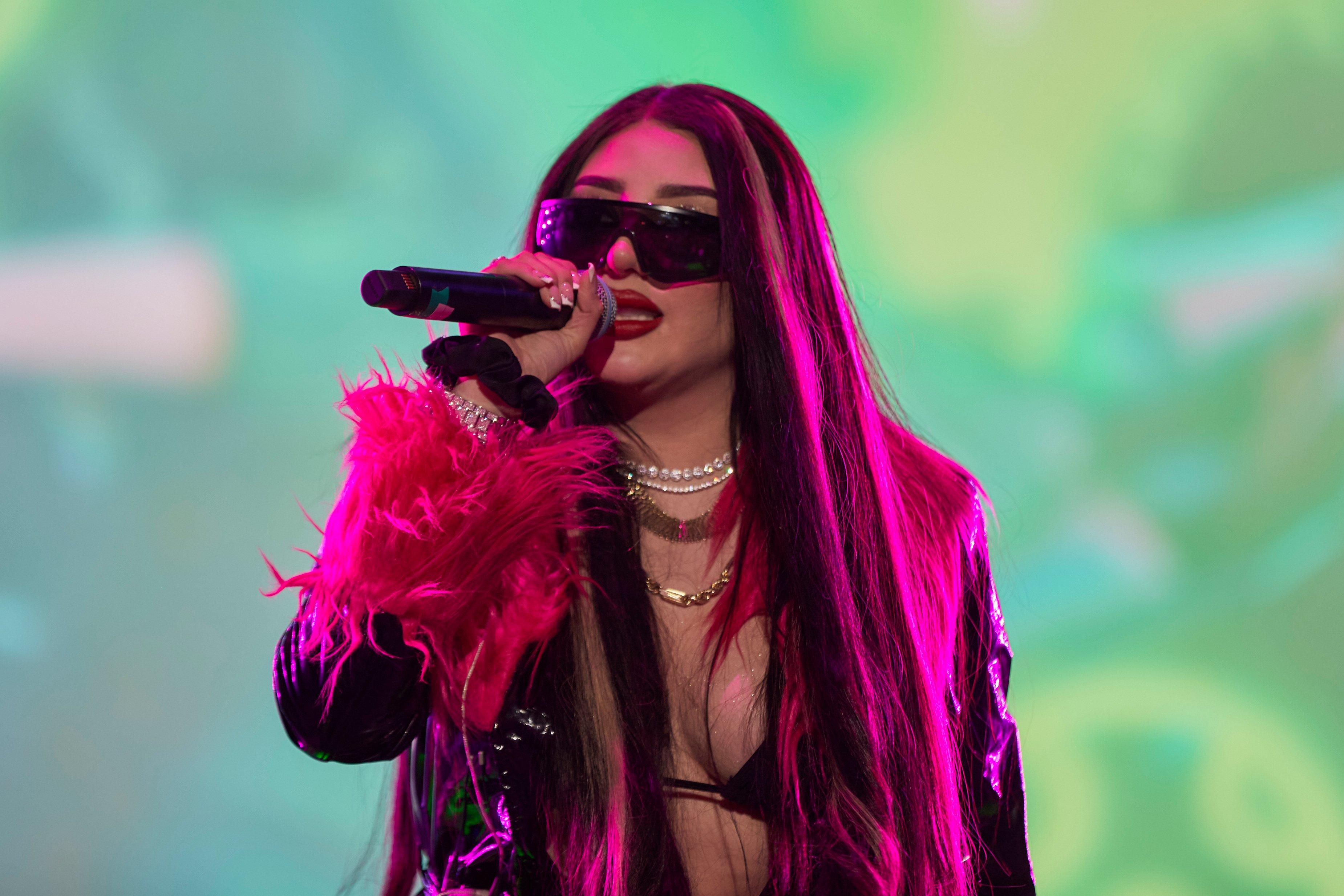
Photo: Jaime Nogales
list
7 Artists Bringing Reggaeton Mexa To The World: El Malilla, Bellakath & More
Pulling from the genre's underground roots in Puerto Rico, these fast-rising reggaeton Mexa artists infuse their own culture and grit into a globally-appealing sound.
Música Mexicana isn't the only sound of Mexico that's blowing up; the country's artists are now starting to make their mark in reggaeton. Imbued with the essence, swagger, and lingo of Mexico, reggaeton Mexa is the next big Latin sound that's going global.
Originating in the Caribbean, reggaeton evolved from Panama’s reggae en español and Jamaican dancehall of the 1980s. Puerto Rican acts like DJ Playero and DJ Nelson shaped the sound of reggaeton in the island's underground scene during the '90s, while Daddy Yankee, Tego Calderón, Don Omar, and Ivy Queen pushed the genre into the mainstream at the dawn of the new millennium.
Boricua acts Tainy, Bad Bunny, and Ozuna pushed reggaeton into the next decade, though Colombia also brought about the genre's second wind. J Balvin's success solidified Medellín as a reggaeton hotbed, spawning Maluma, Karol G, and Feid as global stars.
Learn more: The Sonic And Cultural Evolution Of Reggaeton In 10 Songs
In the 2020s, Mexico is becoming the next hub for reggaeton as artists who grew up listening to the Puerto Rican OGs — as well as Mexican acts Ghetto Kids and Pablito Mix — are now putting their own stamp on the genre. In late 2022, Bellakath put a spotlight on reggaeton Mexa with her viral hit "Gatita"; the following year, Yng Lvcas took the sound to new heights with his "La Bebé" remix featuring Peso Pluma, which reached No. 11 on the Billboard Hot 100 chart.
Reggaeton Mexa pulls from the genre's underground roots in Puerto Rico, infusing its songs with Mexican culture and grit. Lyrics are full of Mexican slang that reflect life in the barrios.
"Reggaeton Mexa is reminiscent of the sounds of the '90s and 2000s from Puerto Rican DJs like Playero and Joe," El Mallila, one of the reggaeton Mexa leaders, tells GRAMMY.com. "The songs, the beats, and rhythms are more or less similar to that flow. The difference here is the Mexican jargon. Reggaeton Mexa is spicy. We play with Mexican profanities without being offensive."
The emerging genre has gained traction among the larger reggaeton community with Jowell y Randy, Maldy, and J Balvin recently featuring on their songs. Following the success of Yng Lvcas, Bellakath, and El Malilla, Mexican acts like Peso Pluma (who dedicated part of his Éxodo album to reggaeton) and pop star Kenia Os are embracing the wave. As the tide continues to rise for reggaeton Mexa, GRAMMY.com is highlighting seven of the sound's leading artists.
Yng Lvcas
Guadalajara, Jalisco native Yng Lvcas noted that no one around him could name a Mexican reggaeton artist, so he decided to fill that void.
An early encounter would make for auspicious beginnings. As he was signing a record contract with Warner early last year, Yng Lvcas crossed paths with Peso Pluma. The música Mexicana star's first foray in reggaeton was with Yng Lvcas and their global hit, a sensual remix of "La Bebé." Their collaboration became the first reggaeton song by Mexican artists to enter the Hot 100 chart.
Last October, Yng Lvcas released his album Super Estrellas to put a spotlight on more reggaeton Mexa acts. The LP included songs with El Malilla and El Bogueto. Puerto Rican OG Maldy later teamed up with Yng Lvcas for the hypnotic "Diviértete."
Bellakath
The first artist to get the global conversation started about reggaeton Mexa was Bellakath. After earning a law degree from the National Autonomous University of Mexico, the Mexico City native became a social media personality. Bellakath leveraged her following to start her music career, which exploded in late 2022 with the frisky "Gatita." The song went viral on TikTok and the music video has over 144 million views on YouTube.
In the male-dominated reggaeton Mexa scene, Bellakath is continuing to keep women on top. Last year, she released her debut album Kittyponeo with the hit "Reggaeton Champagne" featuring Dani Flow. After signing with Warner in May, Bellakath dropped "Sandunguea," which sampled the reggaeton classic "Mayor Que Yo" by Luny Tunes. On July 15, Bellakath released her second album, Sata 42, where she ventured into dembow music with artists from the Dominican Republic.
Learn more: 5 Women Essential To Reggaeton: Ivy Queen, Natti Natasha, Karol G, Ms Nina & Mariah Angeliq
El Malilla
El Malilla proudly represents the chakalones (Mexican slang for "bad boys") in reggaeton Mexa. Hailing from Valle de Chalco, El Malilla remembers his first encounter with reggaeton as a teen came from the pirated CDs that were sold at the tianguis, or open-air markets.
Now, El Malilla is bringing Mexico's version of reggaeton to the forefront. He recently released his debut album ÑEROSTARS, which includes his viral hit "B de Bellako" with Yeyo. Back in May, Puerto Rican OGs Jowell y Randy jumped on a remix of the quirky banger.
El Malilla also wants to make reggaeton Mexa more inclusive. Reggaeton has historically excluded LGBTQIA+ folks, though queer artists such as Young Miko, Villano Antillano, and La Cruz are changing that tune. On the Mexican front, El Malilla wanted to be an ally to his queer fans with the 2000-inspired "Rebote" music video, which was shot at the gay club Spartacus with Mexican drag queens.
Within his album, El Malilla is also stretching the bounds of his artistry by exploring merengue in "Coronada" and experimenting with house music in "Todo Tiene Su Final." "ÑEROSTARS is a call to all the reggaeton Mexa artists to dare themselves to make new music and try different sounds," he says. "Don’t stay in your comfort zone just making perreo."
Yeri Mua
Veracruz native Yeri Mua is keeping a high heel firmly planted on the neck of the genre, holding it down for the women in reggaeton Mexa.
Mua started out doing makeup tutorials on YouTube and later grew a massive social media following. Last year, she launched her music career on Uzielito Mix's reggaeton romp "Línea del Perreo," which has over 103 million streams on Spotify. In songs like "Chupon," Mua brings a fierce femininity to reggaeton Mexa while flipping the genre's explicit lyrics from a woman's perspective. In April, Kenia Os tapped Mua and Ghetto Kids for her reggaeton Mexa banger "Mamita Rica." With a laugh, Os told GRAMMY.com at the time, "[Mua] sounds very sexy and makes noises like meowing. It felt very great to work with her." Last month, Mua signed a record contract with Sony Music México.
El Bogueto
Alongside El Malilla, El Bogueto is one of the OGs of reggaeton Mexa. The Nezahualcóyotl native has scored a number of hits since 2021, including "Tu Favo" and "G Low Kitty," which has nearly 60 million streams on Spotify.
The title of El Bogueto's 2023 debut album Reggaetoñerito is an amalgamation of the words reggaetonero and ñero, which is Mexican slang for a person from the hood. El Bogueto has continued to rack up millions of streams with his LP, which include hits like the freaky reggaeton romp "Piripituchy" and "Dale Bogueto." In May, J Balvin gave his co-sign to El Bogueto and the reggaeton Mexa scene when he jumped on an all-star remix of "G Low Kitty."
Yeyo
Among the artists on this list, Yeyo is the freshest one on the reggaeton Mexa scene, but he's fast becoming one of the genre's brightest stars and the go-to artist for a hit collaboration. The Zacatepec, Morelos native is a protege of Ghetto Kids' Luis Díaz, who also serves as his manager.
Yeyo's playful and infectious flow as a Mexican reggaetonero has translated into million of streams in songs like "B de Bellako" with El Malilla and "Mami Chakalosa" alongside Bellakath. He has also flexed a romantic side to his distinct voice in Ghetto Kids' recent hit "En El Ghetto #5 (La Discoteca)." Yeyo has also shined on the electronica-leaning reggaeton of "Maldad" and the sensual "Tentación."
Uzielito Mix
Many of the songs mentioned in this list wouldn't have been possible without Uzielito Mix. Following in the footsteps of Ghetto Kids and Pablito Mix, the Mexico City-based producer has become the backbone of the sound of reggaeton Mexa. Uzielito Mix produced Yeri Mua's hits like "Línea del Perreo" and "Brattiputy." He also co-produced El Bogueto and El Mallila's "G Low Kitty" with DJ Rockwell, which J Balvin later hopped on.
In his stellar collaborations, Uzielito Mix is known for uniting many of the reggaeton Mexa stars. He continues to push the sound of the genre into the future like in the spooky "Espantan" remix with El Bogueto, Alnz G, Dani Flow, and Tensec. In 2022, Bad Bunny tapped Uzielito Mix to open his World's Hottest Tour stops in Mexico City.
The Latest News About Latin Music
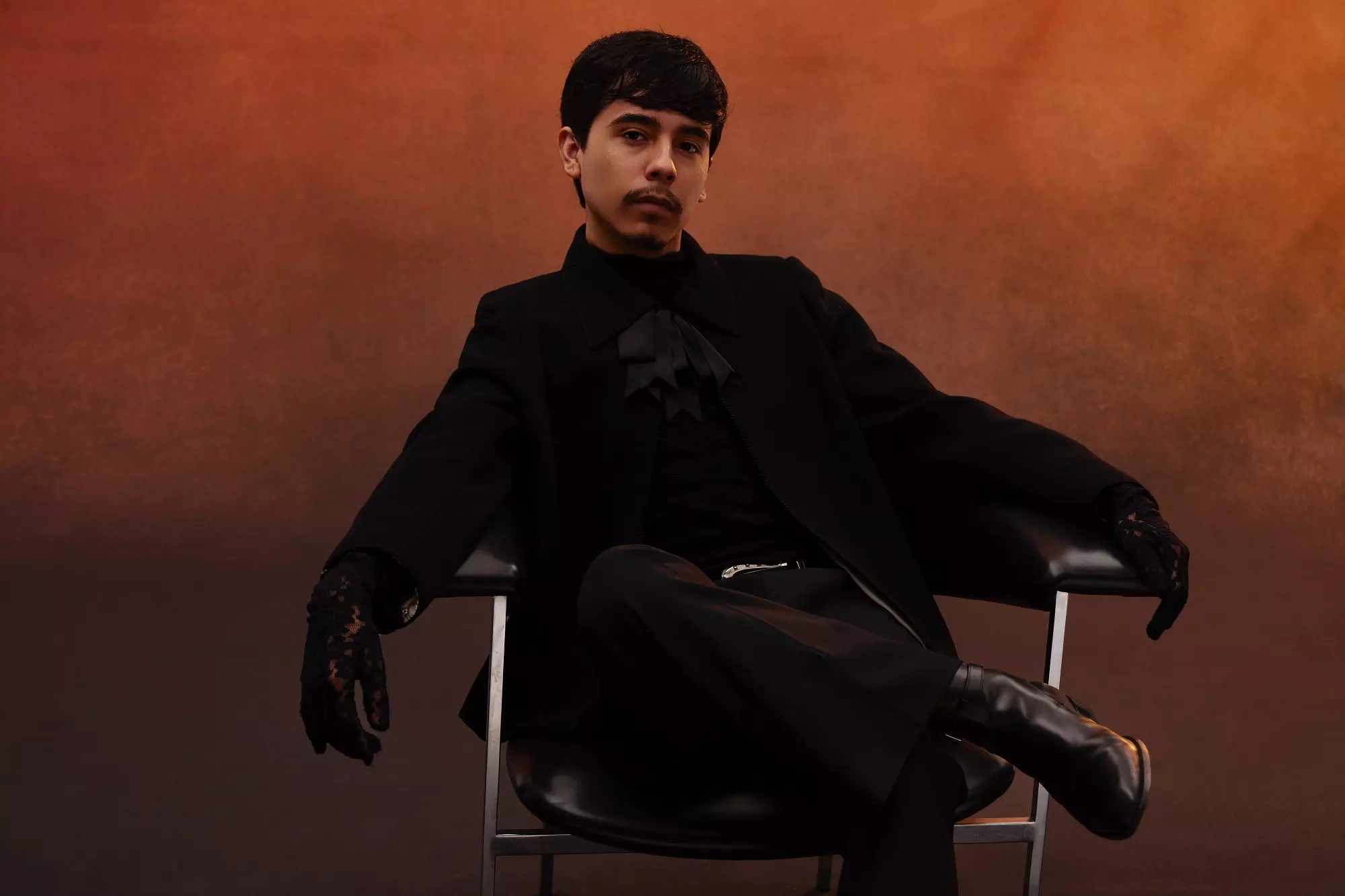
On 'Mirada,' Ivan Cornejo Redefines The Sound Of Sad Sierreño And Helps Fans Heal Through Music
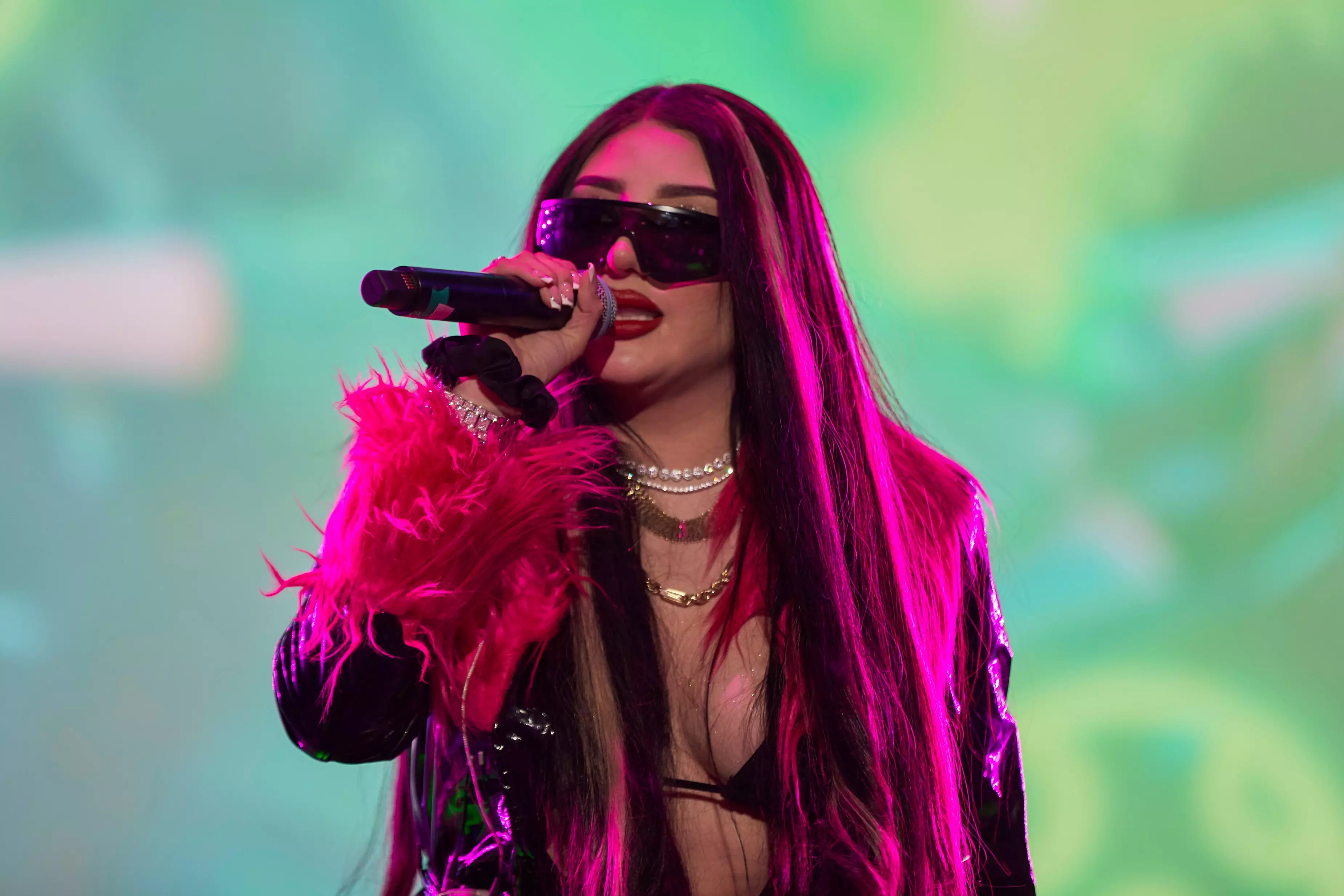
7 Artists Bringing Reggaeton Mexa To The World: El Malilla, Bellakath & More
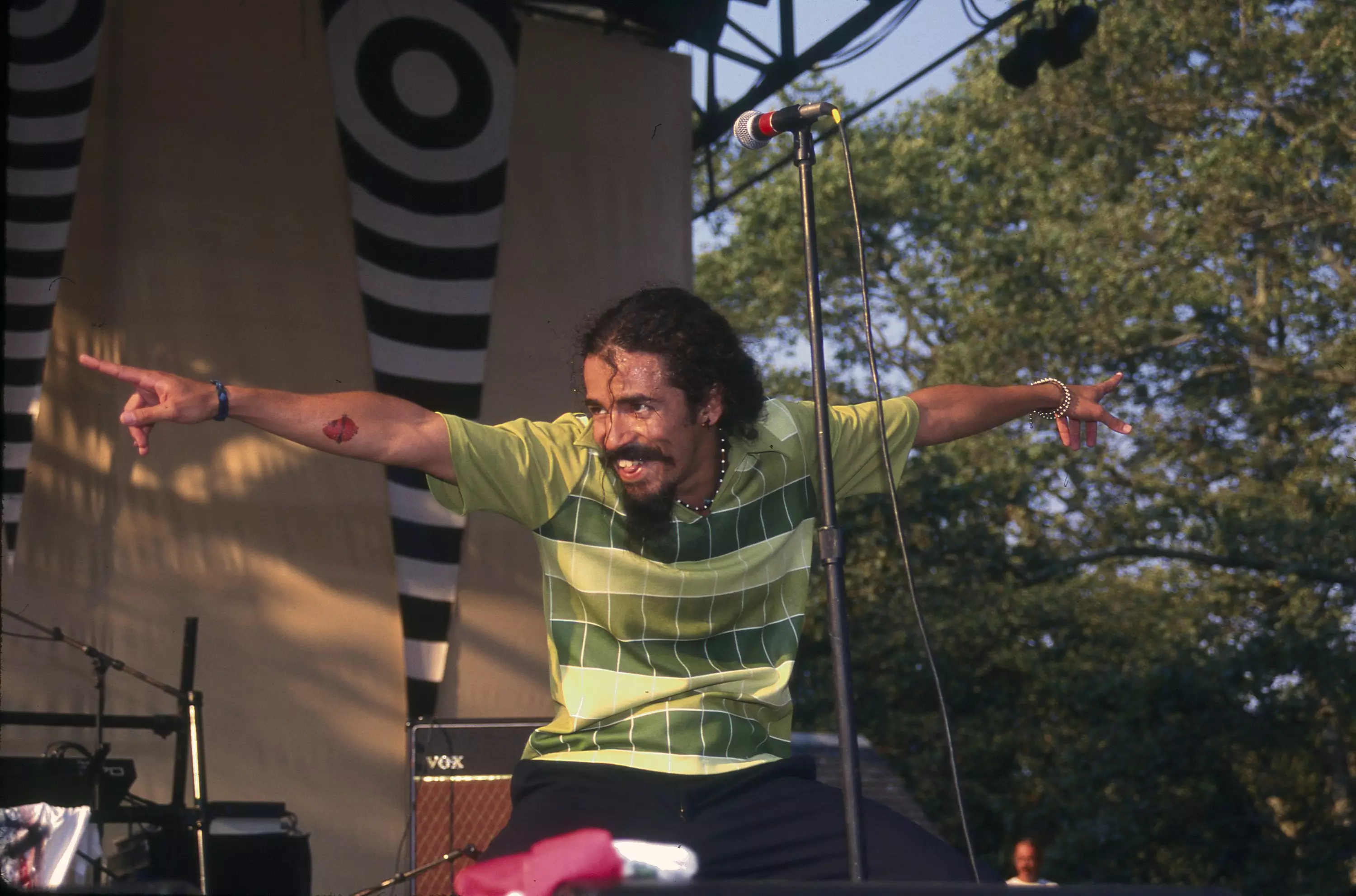
Revisiting 'Re': How Café Tacvba’s 1994 Masterpiece Changed Mexican Music Forever
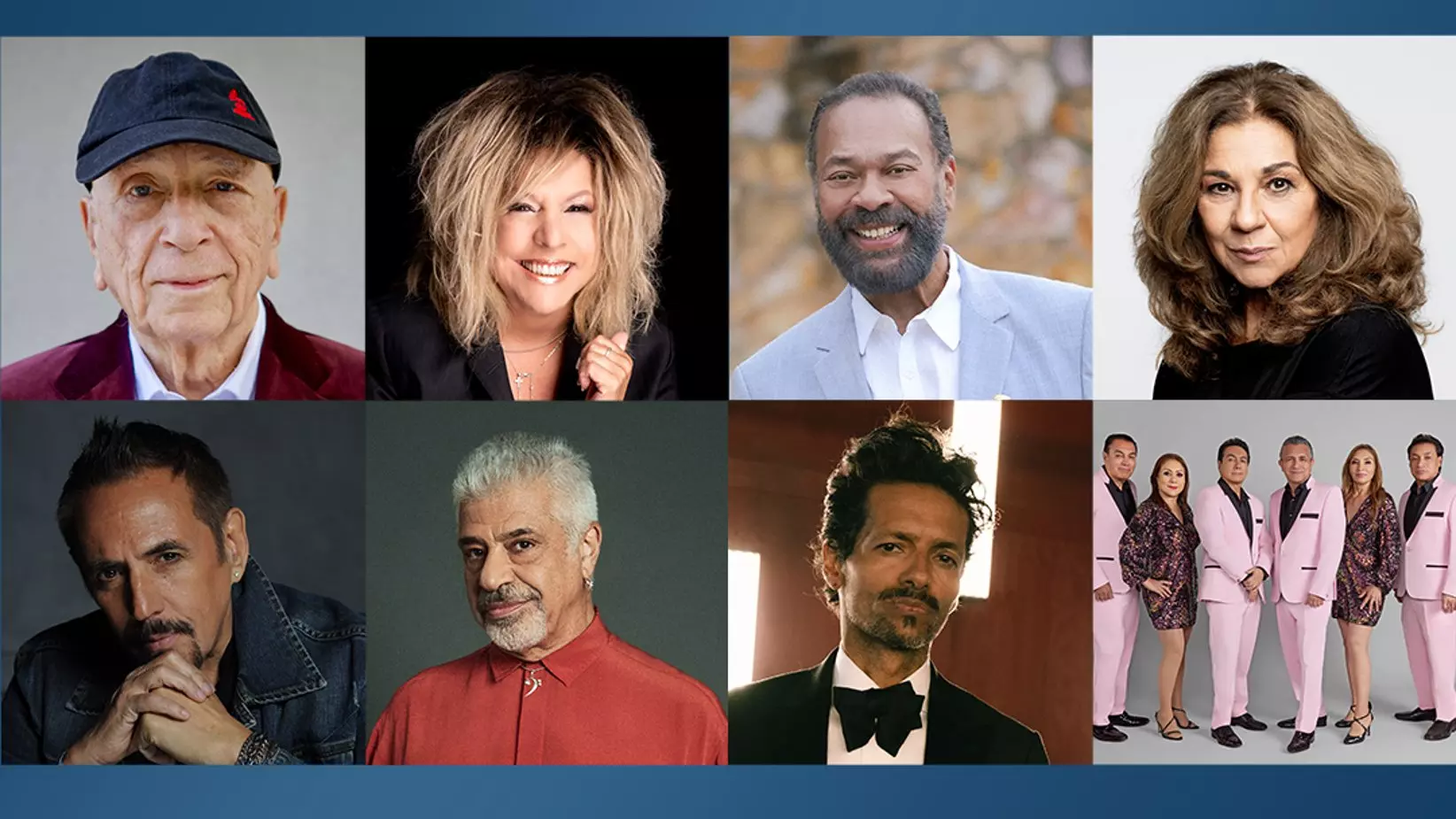
The Latin Recording Academy Announces 2024 Special Awards Recipients: Los Ángeles Azules, Draco Rosa, Albita, Lolita Flores & More
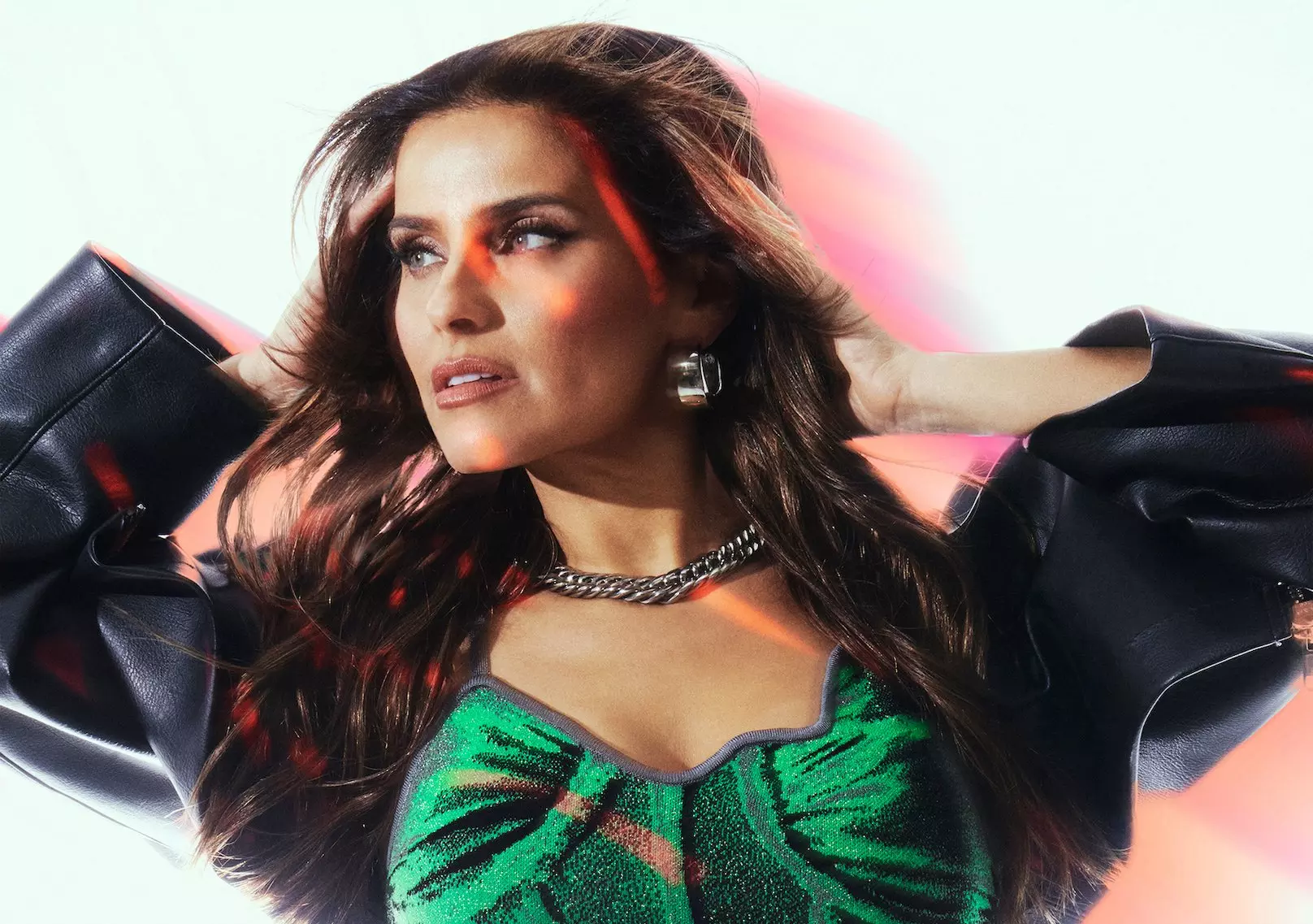
Nelly Furtado On How Remix Culture, ADHD & Gen Z Inspired Her New Album '7'
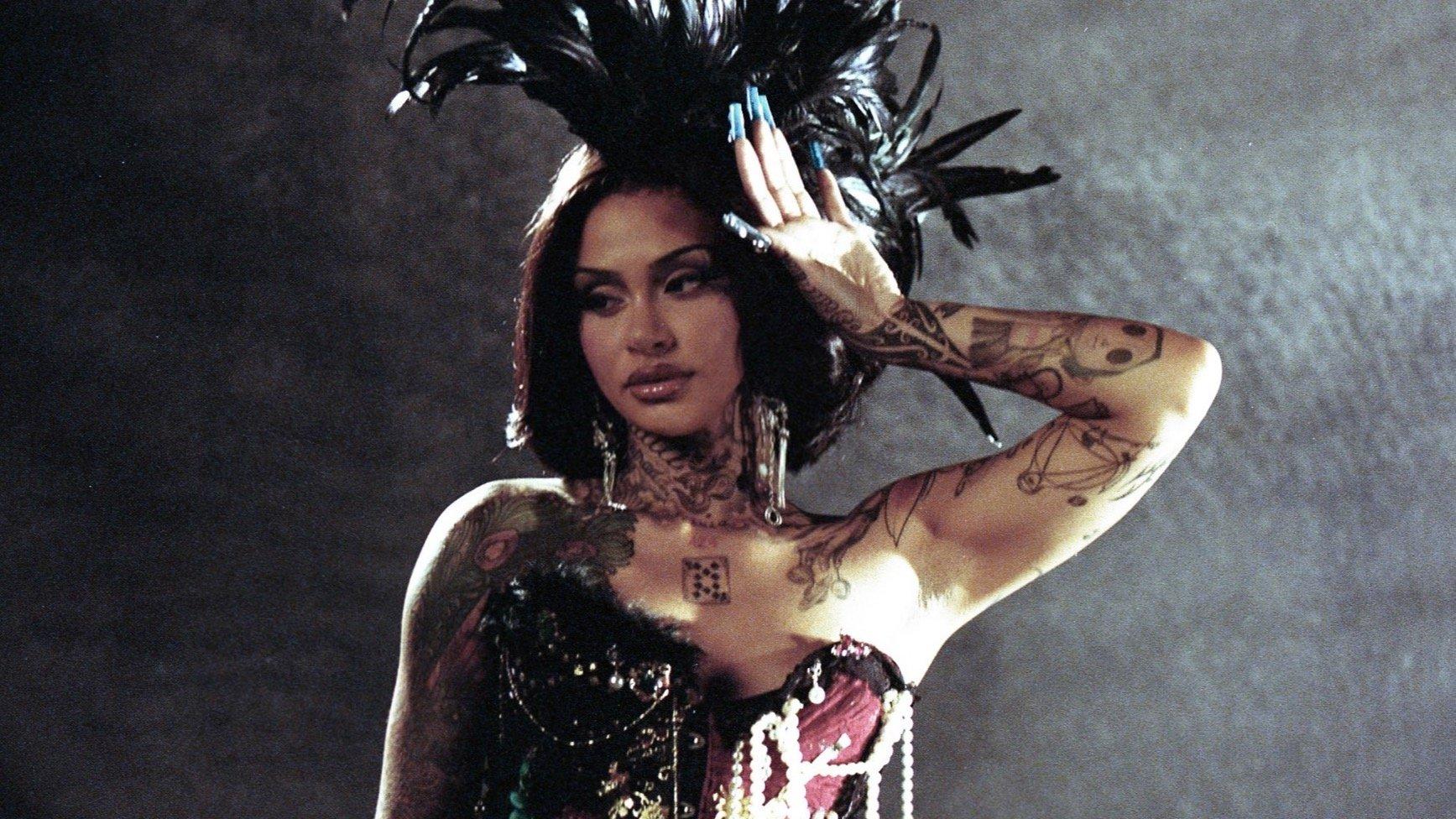
Photo: Mia André
interview
Crashing Into The Present: How Kehlani Learned To Trust Their Instincts And Exist Loudly
"I want this next batch of music to feel like the most fiery parts of me," Kehlani says of her new album, 'Crash.' The singer/songwriter speaks with GRAMMY.com about embracing the moment and making an album she can headbang to.
After finishing the first mixes of their new album, Kehlani knew exactly what she needed to do: head to Las Vegas.
The L.A.-based, Oakland-born singer/songwriter had always identified with Sin City: "I’m full of juxtapositions," she tells GRAMMY.com. "Vegas is this crazy bright light city in the middle of a vacant desert that has weddings and also strippers." Fittingly, Kehlani harbored a very Vegas-like image in their head while creating Crash, a record built on blaring neon, glowing smoke, and the highest highs.
Crash drops June 21, and is Kehlani's fourth solo album. She burst onto the scene in 2009 as a member of teen sextet PopLyfe, but their 2014 debut solo mixtape Cloud 19 announced a far more complex character. Their debut full-length, SweetSexySavage, was released three years later to critical acclaim, with two more albums and a handful of platinum-certified singles following. As if that weren’t enough, Kehlani added acting, appearing in "The L Word: Generation Q" and a cameo in Creed III.
And while Crash embodies the evolution and growth through all those experiences, the record builds a hyper-real language all their own. Beyond any sense of R&B or pop, soul or hip-hop, Crash finds Kehlani chasing passions that refuse to fit in any box, shifting multiple times within a track — refusing to focus on anything but the moment.
"A crash isn't anything from the past. It isn't the anxiety of what's about to happen," she says. "It's the height of the moment. It's right now."
Nearing the release of Crash, Kehlani spoke with GRAMMY.com about finding inspiration from international music, getting their five-year-old to sing on the album, and their need to stage dive.
What’s it like living in Los Angeles after growing up in the Bay Area?
I moved to L.A. when I was about 17. I had already left the house. I left the house at 14, and by the time I was almost 18 it was the appropriate time for me to situate in a new place. L.A. and the Bay are like cousins. Do we have differences? Absolutely, things that are fundamental to us, but when you leave California, you can really see that we're just like a big family.
Had you been dreaming of L.A. as a place where you could pursue art? Were you already set on that goal?
It was the closest place that a young, very broke person could go and work in music. I'm sure there were other places with musical homes, musical cities, but if all I had to do was get on a $15 bus and go find someone to stay with in L.A., I was gonna do it for sure.
That’s the same ambition that I feel drives this new record, which is just so dense and full of surprises. That includes the lovely retro radio intro to "GrooveTheory," where you move from this ‘60s pop feel to the present. That’s such a smart way to foreground your evolution.
I think the second that we made that song and then turned it into ["GrooveTheory"], I was like, This feels like it encompasses where I'm headed, this whole new sound.
Once that radio dials in and it comes in with R&B elements, it's producing where I'm headed, but also remembering that my core hasn't changed. Especially the energy of what I'm saying in the song, like, "I'm kind of crazy," it's introducing this energy difference on this album. I feel like that's the biggest change, and that's what's so prevalent in this whole rollout. Energetically, I'm on a whole different type of time.
You can sense it. 'Crash' feels really rooted in self-expression and personal growth, and when you listen to it as a whole, it really does seem like an evolution story. Beyond just the genre and style, how do you feel the way that you've expressed your true self has shifted over the years?
Thank you! That's been the feedback I've gotten from pretty much everyone who's listened, and I don't know what I expected, but it wasn't this. I have realized the public's understanding of me and the general consensus for so long, and I also realized how multi-faceted I am to people.
People get really confused when I express all the sides of my personality. They’re either, like, "Okay, she makes really sweet love songs," or "We've seen you be political, we've seen you come out, we've seen you be a family member." And then there's a lot of people who are, like, "I feel like she's f—ing crazy. I've seen her in multiple relationships. I've seen her be angry. I've seen her get online and cuss people out."
I want this next batch of music to feel like the most fiery parts of me. I want it to feel like the most present and energetic parts of me. I don't want anything to feel somber. I don't want anything to feel reminiscent. I think a lot of my albums in the past have been me looking back, and sitting in that feeling and detailing it. I just wanted [this album] to feel right here, right now, which is why the title came about. A crash isn't anything from the past. It isn't the anxiety of what's about to happen. It's the height of the moment. It's right now.
That’s unfortunately a story you hear too often about artists of color — that essentialization, where you can only be seen as one thing. R&B often gets hit with those same issues. Throughout your career you’ve stood up to those expectations, and "Better Not" on this album is such a good example of that. It’s a left turn, a stylistic contrast and an open conversation with the listener. You cleverly fuse that intentionality with a voice that’s stronger than ever.
In the past, I have had moments where I would make the song and [start recording], and there would be so many versions of each song on different microphones, recorded in different places.
"Let me try vocal production. Let me try to go back and work with this version again." I went back and did vocal production with Oak Felder, who did all the vocal production on SweetSexySavage. When I come back to some of my favorite vocal production moments, it was moments like "Distraction" or "Advice" or "Escape" — songs on my very first album — and I wanted to get that feeling again. Where it's lush where it needs to be, but also that I really mean what I'm saying.
That started with the approach in the songwriting. Once I had the songs and I had to go back and deliver them, I had enough time to listen and listen, to learn the songs and identify with them. We would make music all day and then go out, and we would be in this sprinter van on the way to going out, and, like, bang, the songs we just made, the energy was just different. It allowed me to be present in a different way where my voice is able to show up like that.
Which again ties perfectly to crashing into the present. As someone from South Africa, I love that the other guests that you included represent different cultural viewpoints. You worked with Young Miko from Puerto Rico, Omah Lay from Nigeria. Having that musical dialogue is so powerful.
We had so many conversations about how America's in the backseat often when it comes to music. We have our moments, and it's fantastic, like Beyoncé’s Cowboy Carter. There's a culture that is super American, that is Black, that historically needs to be dived into. It needs to be shown that we do have something here.
So many people that don't speak Spanish bang Bad Bunny all day. Amapiano’s taking over; Tyla’s going up. It's really not here. So that wasn't a conscious choice. It's just what we've all been listening to, what we've been loving.
Read more: 11 Women Pushing Amapiano To Global Heights: Uncle Waffles, Nkosazana Daughter, & More
Speaking of guests, I wanted to ask about your daughter, whose voice is on "Deep." Was she just in the studio and you got her singing?
So those vocals on that, that’s actually my little sister and my goddaughter. And [my daughter] was in the room and she started singing along. She has perfect pitch; she's always freestyling or singing or making something up.
I was like, "You want to just go sing on it?" What's on there is her first take. Literally. She did it the first time, all the way through, perfectly. I was like, "Well, that's it, guys. I can retire."
That track is so lush. It feels so alive. Were you working with a full band?
[Producer] Jack Rochon, who I did a lot of the music with, he just is a freaking genius music whiz. Honestly, he's one of the most humble people that I know, and deserves credit for how amazing a lot of this album is.
Talking about touchstones, there's a Prince energy to the title track. Did you have any new inspirations or influences for this record?
Thank you! My main focus for this album came from going on tour for my last one and making such a pretty, sweet, intimate album, and then playing some of the biggest venues of my career. At some point I had to rearrange the setlist to add in a lot of the album before that one, because it was just more energy on the stage. By week two of tour, the setlist had completely changed. I knew that I was playing venues on this next tour that I've dreamt about, places that I can't fathom that I'm playing, like Barclays Center.
I do a lot of things for, like, my inner child, and this is such a move for my inner child. Like, You're about to go play Barclays. Do you want to look back and say, ‘I rocked out and played Barclays’? I'm a person who headbangs on stage. I stage dive. I wanted to create an album that would ring through a venue like that. I want people to be engaged again. I'm not looking for the lighters and the somber, holding each other — which will occur regardless, because it's a me show.
But I really wanted people to be in their bodies, and their heart’s exploding and the ground’s shaking. So that's what we accomplished. I wanted to have fun. This album is so fun to me. It’s a place of fire in my heart.
It took me a second to get the word play on "Eight." I loved the track, and then suddenly I was like, 'Oh… I knew there was something raunchy going on here.'
[*Laughs.*] "Eight" was super fun, and shoutout to the boys that I did it with, because they made it everything for me.
I didn't come up with the wordplay. My boys did. Like, "This is how you talk!" I was like, "It is! This is perfect." Once I got in to fix things, add things, add my own spin, and finish writing, my favorite part was that it sounds like a Brandy song. She's my favorite.
I also wanted to ask about the Nina Sky sample on "After Hours."
That was mine. I was like, "What can we flip that when it comes on, my generation loses their mind?" And for me, every single time that Nina Sky comes on in the club, everybody's like "Woo!" And then you see how many songs were made from that same sample, and they're all songs that make us lose our minds.
I went into the room with the producers, and I was like, "So, I want to flip this, but I want you to make it to where it doesn't become one of those where the whole thing is just a sample."
Similarly, "Lose My Wife" balances breeziness with high emotional stakes. Is finding a balance like that just natural for someone so capable of juxtaposition?
The second that we established that [the record] felt like Vegas, I knew what components were missing from the energy of how I feel the second my car crosses the line into the city of Las Vegas. I knew I was missing that feeling of the next morning when you realize you went on this high and you come down. I wanted to create these scenarios that weren't necessarily applicable to me, but captured that emotion. I've been there before, and I want people to be like, Damn, I've been there before. I know this feeling.
I recorded that song at 4 in the morning with a sinus infection. The second that we finished it, everybody was like, "You can never re-sing that. Don't try to make another version, you're not gonna be able to sound like that again." All the chatter in the background of that song is really everybody who was in the studio that stayed up to just hang out. We had the tequila out, it was perfect. That was probably one of my favorite moments of making the album.
It takes a while as an artist to reach a place where you can capture those moments. You said before that people try to figure you out, and I mean this in the best possible way, but it feels like now you don’t care if they can’t figure you out.
I don't give a f—anymore, yeah. And that was a very important thing for me to learn. I used to care so much, and I would spend so much time explaining myself online, in music, in interviews, on stage. I realized that you're damned if you do, damned if you don't.
I've been so forward-facing with my heart my entire career that I've left a lot of room for people to consistently pedestal me and then critique me, for people to want to tear me down. I realized I'm just being present, here, existing loudly in front of a billion people, and whichever way that goes is how the cookies gonna crumble. Me giving a f—? I'm the only one it's affecting at this point, for sure.
Angélica Garcia's Intuition: How 'Gemelo' Was Born By Embracing L.A., Ancestry & Spanish Language
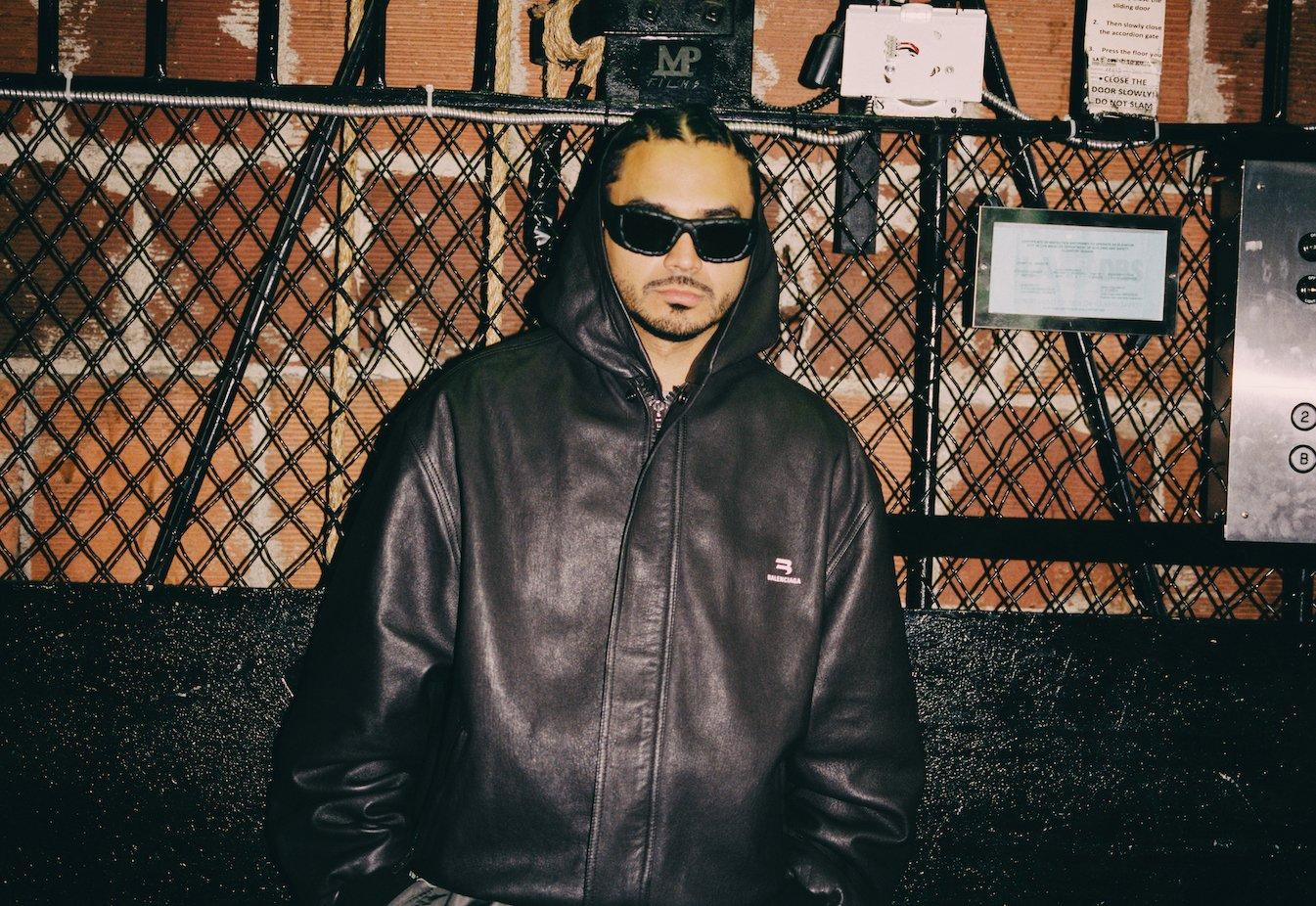
Photo: Waiv
interview
On 'Sayonara,' Álvaro Díaz Embraces The Sadness Of Love Lost
Known for his vulnerable style of reggaeton, Álvaro Díaz’s sophomore album ‘Sayonara’ says "goodbye to the happiness you thought you found."
Álvaro Díaz has a twinkle in his eye — he knows he’s onto something special.
"It’s crazy that it’s an alternative album, but also the most reggaeton I’ve ever made," Díaz says of his recently-released sophomore album, Sayonara. "It’s both worlds. I have my fingers crossed that people are going to love it."
Díaz, who is 28, has been making music since he was a teenager. A constant creative force, he grinded for years as an independent artist, building a solid fanbase in Puerto Rico before breaking into the wider Latin urbano scene with 2021 debut, Felicilandia, which layered fresh pop melodies onto playful reggaeton and trap beats, exploring the euphoria of love.
Notably darker and much more experimental than its predecessor, Sayonara marks the end of that "happyland" feeling.
"My story with ‘Felicilandia’ ended in heartbreak," he tells GRAMMY.com. "I was just writing about my life. It’s like a nightmare when you can’t stop thinking of that person. The usual Puerto Rican [reaction] to a breakup is like,'Don’t worry, let’s go to the streets!'"
The first half of the record soundtracks this feeling of party and abandon. Perreo tracks like the Feid-featuring dancefloor banger "Gatas Sandungueras Vol.1" nod to old school reggaeton, while Diaz and guest Tainy twist into ravey house beats on "Fatal Fantassy."
With an assist from Spanish indie pop star Sen Senra, "1000Canciones" marks a turning point in the album’s mood. It’s slow, reflective and poignant, with unashamedly heartfelt lyrics. "I went to the streets, and played 1000 songs that reminded me of you / even though I knew it was late / I took my phone to call you," Diaz sings in Spanish.
Lovingly nicknamed "Sadvarito"by fans, Diáz’s vulnerability stands out amidst a reggaeton scene dominated by party hits and swag. Even the biggest hits on Felicilandia— "Lori Party" and "Babysita </3" — were tinged with heartbreak; and fans will be reassured to see his signature fragility thoroughly embedded in Sayonara.
"It’s just how I feel, sometimes I feel empty, sometimes there’s a lot to say," Díaz says of the album’s changing moods.
At the end of the album, Díaz considers trying to get back with his former flame ("Quizás si, quizás no," featuring Quevedo). But, he soon realizes it won’t work: "You know it’s not the same — it’s just me saying 'Sayonara,'" he says.
GRAMMY.com spoke with Díaz over Zoom about why reggaeton is the perfect heartbreak genre and how ‘Sayonara’ is his most experimental work yet.
This interview has been edited for clarity and length.
Sayonara **comes three years after your debut, Felicilandia. There are some similarities in the two albums’ artwork, but we can see something’s gone a bit awry/**
There’s an explosion at the left of the Felicilandia artwork. We were predicting what was going to come. I’m a fan of when artists do these little things, merge album covers, or make songs that live in the same universe.
Felicilandia is the way to find happiness, Sayonara is saying goodbye to the happiness you thought you found.
When you’re with a person you create a world together. But, todo se fue a la mierda. That world has gone. On [the artwork for] Sayonara, I’m looking ahead, but you don’t know my intention. I could try to save everything, or I’m just taking the last look.
The track ‘‘Gatitas Sandungueras Vol. 1’ feat. Feid, has dark undertones, even though it’s a song about partying. How is the track related to the album’s main theme of overcoming heartbreak?
Me and Feid put everything into the song. It’s based on the story of missing her: you’re blind; you’re trying not to think about her.
Feid is like my duo, we always talk about making projects together, and our fanbase likes it when we work together. He couldn’t be out of ‘=Sayonara —he was in Felicilandia singing a sad song, and now he’s singing a party song, so it’s a total contrast.
Same with Rauw Alejandro, who is on the track "BYAK," and was also on Felicilandia single "Problemón." It’s special to have Feid and Rauw on both albums. We didn’t want to repeat what we did before, we wanted to go in another direction.
The album mixes a lot of different genres, but reggaeton is definitely at the foundation of Sayonara. What artists were your core inspirations?
The selection of the sounds, and the beats, reminds me of the golden era of reggaeton in the 2000s. We even used the old Fruity Loops software, and searched for inspiration in [LunyTunes & Tainy 2006 album] Mas Flow: Los Benjamins, or the [2003 compilation album], Blin Blin. All those albums that changed your life in Puerto Rico. That’s why the reggaeton tracks have 2000 vibes, it’s what I listen to.
You’re known for making an emotional brand of reggaeton. When did you first explore reggaeton’s potential to be more vulnerable?
My fans’ favorite songs are my most heartfelt songs. Maybe my most played song on Felicilandia is "Problemón," but on tour, the song people go crazy for is "Babysita." It’s a song I recorded in my house, but it’s bigger than all my other tracks.
So, I know how the people who follow me connect with me. The way I talk about heartbreak speaks to a lot of people; it’s more relatable than how other people sing about it. They call me "Sadvarito," so it was always a challenge to find a way to bring that Sadvarito energy to reggaeton.
What is your favorite reggaeton heartbreak song?
Damn, there’s a lot. It’s hard.
My favorite reggaetoneros growing up were Zion & Lennox, they were my GOATS, and most of their songs are heartbreak songs. So, Zion & Lennox, "Solo Una Noche."
There’s also a song on [Luny Tunes-produced 2005 compilation album] Mas Flow 2 which is my favorite ever: "Es Mejor Olvidarlo." That’s my jam. I used to blast that when I was little. I didn’t know heartbreak then, but I felt that.
So you can cry to reggaeton?
You definitely can! Old school people may say you can’t, but, ey, reggaeton be having feeling. It will make you feel a type of way in a club. It could change your mood completely.
Connecting with fans is everything to you. On Sayonara, how are you hoping to reach people?
I have a really hard time saying goodbye. There’s a phrase: la esperanza es lo último que se pierde, I’m one of those types of guys; the last one who loses hope even if my world is going to pieces. I want to make her fall in love, like on the track "Quien te quiere como el nene." It’s saying I really love you, I want to fix things.
The point of the album is for people to see what chapter they’re in. I’ve never been able to reach the last track, to finally be able to say Sayonara, but I know I will get there!
One woman who listened to the album said it’s awesome to hear a man’s perspective — you go out and party, and then you miss her. She said, usually, for girls, it’s the other way around: you miss him at the beginning, then you go out to party. It gives it realism, boys really be like that. I love it when real life and music come together. I really hope people find themselves in the songs.
"Quien te quiere como el nene" is one of the more experimental tracks on the album, and unexpectedly goes into a drum and bass rhythm. How did that come about?
I did that whole beat with my mouth! I had it in my mind. I had the bass, but it needed a sound there. I don’t know why but I started making these sounds. I sent a demo to Tainy and asked, "Do you think you can do this?" Obviously, he can, he’s Tainy. Alongside Manuel Lara, my main producer, they took it to the next level. They are a dream team.
You break from the reggaeton beat a lot in the album — "Fatal Fantassy" is very house. Tell us about these electro elements.
I like to experiment with different sounds. It’s harder for me to do reggaeton than do experimental things. Different tracks just come naturally. Tainy and I were listening to the album after we had 60 percent of it ready, and we felt like it was missing energy, it needed a bit more uptempo. So we did three sessions and came up with those ideas.
I made a playlist with everything I want to do in the album, so I could say "I want a riff like this." I like to take a lot of ideas and work them little by little. My process is different to a lot of my friends who go to the studio and make three or four songs a day. I really like to feel like what I’m creating.
You’re in Japan right now, and this album frequently mentions Japanese words, people and culture: from "Sayonara," "Kawa," "Majin Buu" and "Yoko." How did Japan influence you?
Japan is really important in this album, the names, the creation. I didn’t want it to be obvious, but it’s there, in the minimalism, the names, It’s magical for me to be now in Japan and listen to the album. I can say, damn this song feels like Toyko, this one feels like Osaka. Now I’m in Kyoto, and I feel "Quien te quiere como el nene" is definitely a song for this city.
I’m a cinematographic guy, I create songs with movies on mute. I recreate the vibe, how I feel it would sound. Even movies filmed in Japan, like ‘Lost in Translation’—I watched that a lot and was inspired by that. That feeling of being lost, of not knowing what’s next.
"Majin Buu" is one of the most heartfelt tracks on this album, and references a "Dragon Ball Z" villain. Why do you draw on that character?
It’s a 2024 alternative love poem! He’s a bad guy, but I flip and use it in a good way.
I like to play with names, most of the time I have the name of the song. I knew I wanted to make a song with Majin Buu but I didn’t know how it was going to sound. The same day I made "Majin Buu," I made the track "Yoko."
Speaking of "Yoko," do you relate to the person who has been painted as the bad guy?
Definitely. When I watched the Get Back documentary about the Beatles on Disney+, I remember seeing Yoko every single moment beside John Lennon. They were inseparable until his last day. All the Beatles had a family, they all had wives, but it was Yoko who was next to John at every moment.
It was a romantic way to say, I want you by my side like Yoko was with John Lennon.
You're very close to your fanbase. Is there anything that artists can do to stay grounded with their fans? As you’re getting bigger, how do you manage the relationship with fans?
Fans made me. Especially during those years when my project didn’t have the light it deserved, my fans were there for me. It’s important for me to have a healthy relationship with them.
I always try to put myself in the shoes of a 16-year-old and think what things could he say to me to make me fall in love with this project?, or what did this artist do that made me a superfan? I try to create experiences. In the run-up to releasing Sayonara, we did listening parties with 15 fans in different parts of the world, with exclusive merch. Seeing the reactions of the people is important for me.
I’ve been making music since 2012. Some [artists] don’t know the hustle; they get big after two to three years. But [success] is not given, it’s earned. I get the rockstar mentality, but that’s not me. It’s impossible for me to lose touch with the fans.
[Sayonara] is a celebration for me and for the fans. I want to do small shows in Puerto Rico, places I played when I was started. I love the shows where you can feel people’s emotions. When you get big, you kind of lose that. But to me, that connection is magical, I never want to lose that.
Kenia Os Unveils Her 'Pink Aura': How The Mexican Pop Star Let Her Feminine Energy Shine
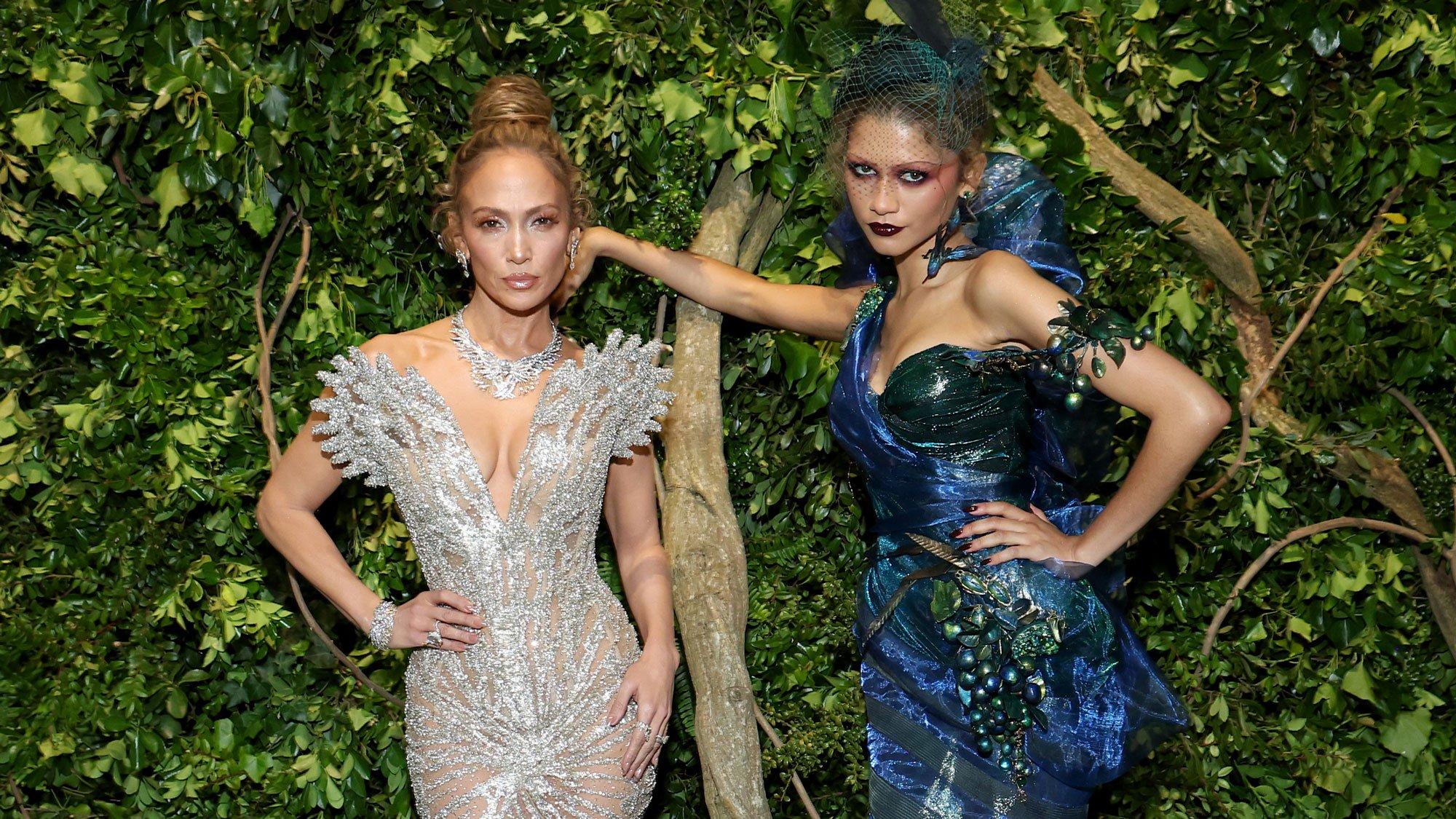
Photo: Kevin Mazur/MG24/Getty Images for The Met Museum/Vogue
list
2024 Met Gala Red Carpet: Music Icons & Celebrities Charm In The "Garden of Time" Including Bad Bunny, Zendaya, Doja Cat & More
From groundbreaking florals to silhouettes in black and piles of tulle, discover all of the spell-binding looks worn by music icons on the Met Gala red carpet in celebration of "Sleeping Beauties: Reawakening Fashion."
This year's Met Gala invited guests to step into the enchanting "Garden of Time" at the Metropolitan Museum of Art in New York City, where fashion meets fantasy. Celebrating the Met's exhibit "Sleeping Beauties: Reawakening Fashion," the first Monday in May saw stars transform the red carpet into a vibrant display of sartorial storytelling. The theme showcased a collection too delicate to wear but alive with the stories of fashion's past.
From co-chairs Zendaya and Bad Bunny to Tyla and Jennifer Lopez, see how music icons and film stars embodied this year's theme with spectacular flair. The gala not only highlighted the sensory and emotional richness of fashion but also set the stage for a night of memorable styles — groundbreaking florals, tiered tulle and all.
Explore the full spectrum of this year's enchanting looks from fashion's grandest night in the showcase below.
Bad Bunny
Jeff Kravitz/FilmMagic/Getty Images
Jennifer Lopez
Photo: Kevin Mazur/MG24/Getty Images for The Met Museum/Vogue
Zendaya
Dimitrios Kambouris/Getty Images for The Met Museum/Vogue
Tyla
Angela Weiss/AFP via Getty Images
Donald Glover
Angela Weiss/AFP via Getty Images
Stray Kids
Photo: Angela Weiss/AFP via Getty Images
Jon Batiste
Angela Weiss/AFP via Getty Images
Queen Latifah
John Shearer/WireImage/Getty Images
Kylie Minogue
Photo: Jamie McCarthy/Getty Images
Christian Cowan and Sam Smith
Photo: Jamie McCarthy/Getty Images
Jack Harlow
Marleen Moise/Getty Images
Teyana Taylor
Jamie McCarthy/Getty Images
Ariana Grande
Kevin Mazur/MG24/Getty Images for The Met Museum/Vogue
Rosalía
Jamie McCarthy/Getty Images
Laufey
Jamie McCarthy/Getty Images
Shakira
John Shearer/WireImage
Doja Cat
Angela Weiss/AFP via Getty Images
FKA Twigs, Stella McCartney, Ed Sheeran & Cara Delevingne
John Shearer/WireImage
Lana Del Ray
Kevin Mazur/MG24/Getty Images for The Met Museum/Vogue
Karol G
Dimitrios Kambouris/Getty Images for The Met Museum/Vogue
Lil Nas X
John Shearer/WireImage
Charli XCX
Angela Weiss/AFP via Getty Images
Cardi B
Gotham/Getty Images
Dua Lipa
Gotham/Getty Images
Lizzo
Dia Dipasupil/Getty Images
